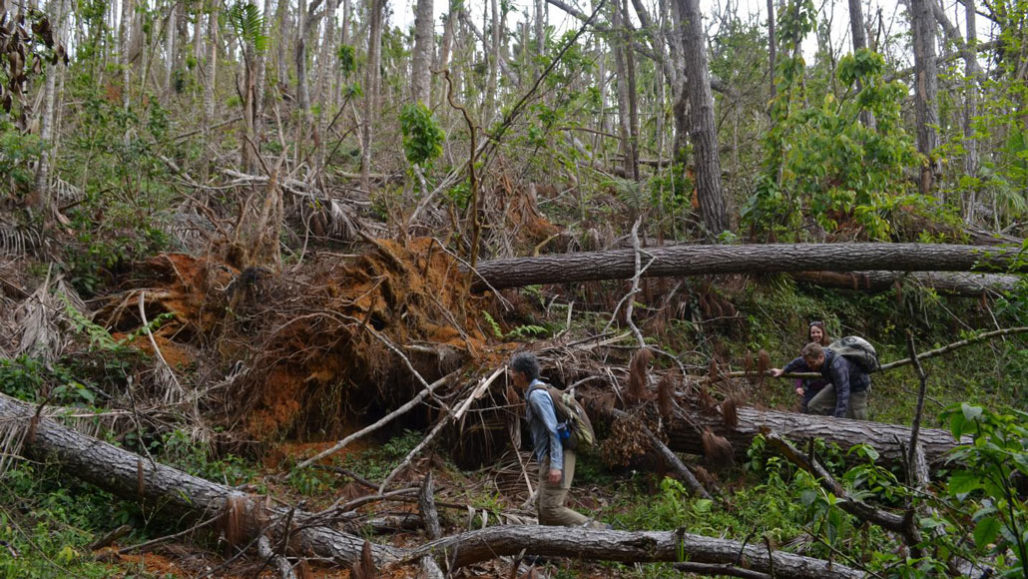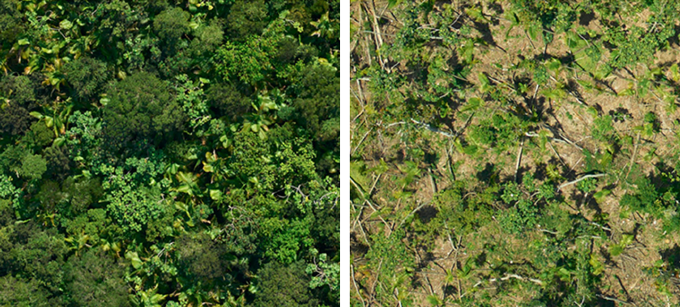How Hurricane Maria’s heavy rains devastated Puerto Rico’s forests

Waterlogged soils, strong winds and intense rainfall together toppled and snapped trees
Wind may be the usual suspect for knocking down trees during hurricanes, but a new survey of forest damage in Puerto Rico after back-to-back hurricanes in 2017 highlights the power of a strong downpour.
When Hurricane Irma passed off the coast of Puerto Rico on September 6, 2017, the storm brought heavy rains but minimal forest damage. Hurricane Maria, which struck two weeks later, was a different story. The strongest hurricane to make direct landfall in Puerto Rico in almost a century, Maria brought wind speeds over 200 kilometers per hour and dropped nearly 1.5 meters of rain in two days on some areas.

“It wasn’t something that I was expecting. I thought the big driver would be wind,” says María Uriarte, an ecologist at Columbia University. Hurricane Maria’s rainfall could have played a significant role in toppling trees by pressing down on tree canopies while loosening soil, Uriarte and her colleagues say. Badly damaged areas also tended to be places that were hammered with heavy rains from Irma and had soil that could hold a lot of water. That suggests regions waterlogged by Irma were primed to suffer worse damage from Maria.
The counterintuitive finding that rain played a bigger role than wind in this forest damage suggests that tools for forecasting impacts of tropical storms may need to give more weight to rainfall, says Weimin Xi, an ecologist at Texas A&M University–Kingsville who was not involved in the work. This may be especially important as the warming climate is expected to brew up hurricanes with stronger winds and heavier rains (SN: 9/25/19).
If Maria-caliber hurricanes become more common under climate change, this may mean that supposedly sturdy trees, which have fared well during middling hurricanes of the past, may be more vulnerable. That could release more carbon into the atmosphere, as larger felled trees decompose, and shrink the habitats of some species.
Comments
Post a Comment